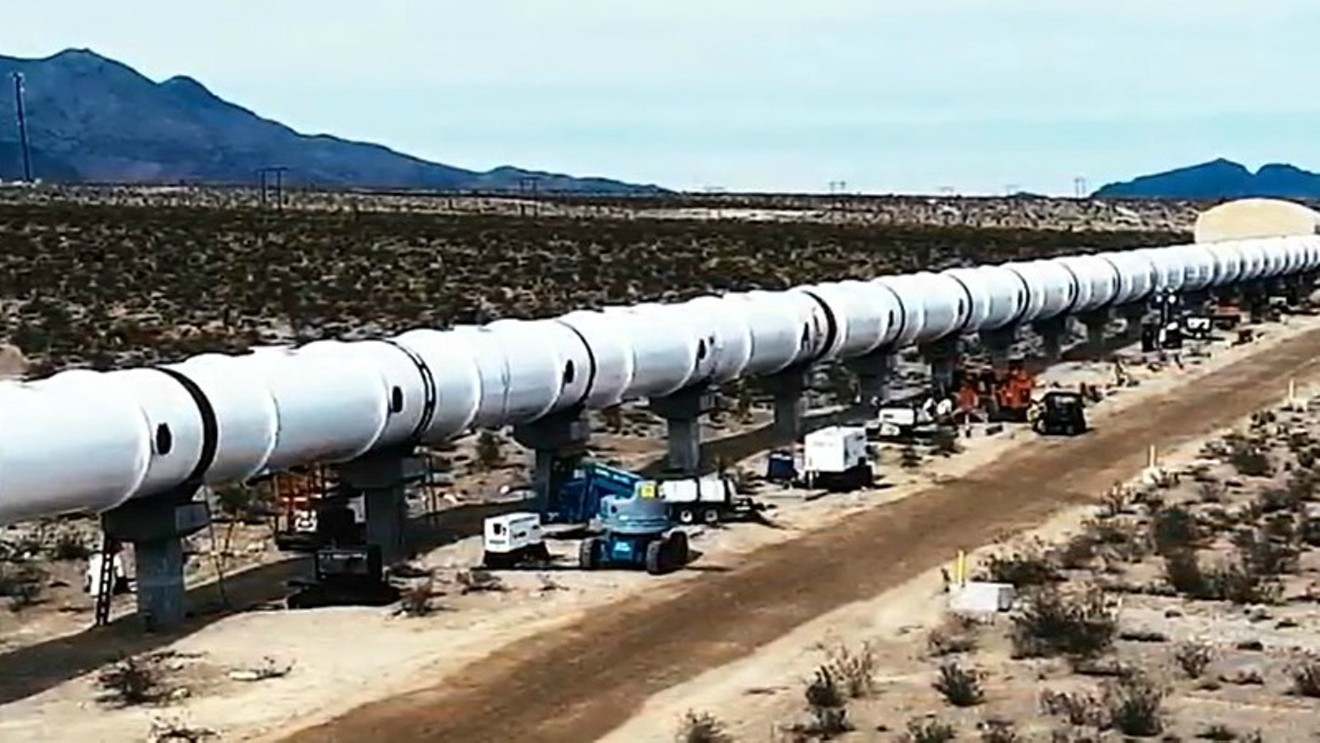Colorado Department of Transportation's Amy Ford was part of the Rocky Mountain Hyperloop team that traveled to Washington, D.C., for what she describes as a two-day "pitch session" on behalf of the group's plans, and she returned to Colorado filled with enthusiasm about the concept and the state's chances of becoming one of three worldwide winners that "will work closely with Hyperloop One engineering and business development teams to explore project development and financing," according to a company release.
"People ask, 'Why should we be doing this?'" Ford notes. "And we say, 'Why not?' We owe it to ourselves to explore where transportation is going, and we felt it was incumbent to make sure we did."
Of the three Colorado routes among the eleven U.S. finalists, one doesn't originate in the state, but runs through it. That proposal would link Cheyenne, Wyoming, and Houston by way of a 1,152-mile hyperloop that would reduce the commute time from seventeen hours driving a car or truck to one hour and 45 minutes, by the firm's estimate.
As for CDOT, which joins the City and County of Denver, Denver International Airport and the City of Greeley in the Rocky Mountain Hyperloop coalition, it's more directly involved in the other two routes.

A map showing the two routes pitched by the Rocky Mountain Hyperloop team.
Colorado Department of Transportation
The DIA part of the package is important, Ford stresses: "It's the sixth-largest airport in the country, but it has the capacity of going from six runways to twelve. It can double in size almost in the blink of an eye, and that's a unique environment in the United States. And there are incredible advantages to tying that in to Hyperloop and other transportation assets. Imagine being picked up by an autonomous Uber that is able to drive directly onto the Hyperloop, and when you reach your destination, it drives you right back out."
The second proposal, she goes on, "is the mountain corridor," mirroring Interstate 70. This route would take longer simply because of the terrain, but the preliminary environmental impact statement for transportation expansion through the corridor would allow for what she calls "an advanced system. We've looked into a number of things in that area, and magnetic-levitation systems were a part of it."
All of the plans are conceived "with an eye to the future," Ford acknowledges. "This isn't an immediate/now kind of proposition. But it's the sort of thing we could be talking about forty or fifty years in the future when we talk about transformative leaps in transportation. We really haven't had one for a hundred years, with cars — and prior to that, there were the railroads."
Hyperloop One talks about the technology as "physical broadband," Ford points out. "Right now, we're able to move packets of information, whether it's video or whatever. But this would move people and goods at hyperspeed, and in their view, it commoditizes your time. The trip from Fort Collins to Colorado Springs would be less than thirty minutes, and that could be really revolutionary. The railroads were monetized largely because of development; in 1867, the leaders of Denver said, 'We must bring the railroad here. It's our future.' And Hyperloop would also have the potential of really transforming the region. We have so many incredibly diverse industries, from biomed to agriculture to oil and gas. With this fluidity of travel, you can look at mega-regions being joined, so that people could choose to live wherever they wanted to."

Another image from the CDOT pitch video.
Colorado Department of Transportation via YouTube
1: If Anything Goes Wrong, Everybody DiesFord doesn't shrug off such concerns. "The company is building a test track in Nevada, and they've been addressing some of these issues," she points out. "That's where we, as a government agency, think about having safety regulations in place to make this truly a viable transportation alternative."
2: It's Probably Physically Impossible to Build the Hyperloop
3: Heat Would Destroy the Hyperloop’s Track
4: Hyperloop Would Be Incredibly Vulnerable to Terrorism
5: The Hyperloop Will Probably Cost WAY More Than Its Formal Estimates
Still, Ford thinks Hyperloop One is "getting close to their Kitty Hawk moment," where the concept truly takes off. Meanwhile, she anticipates that the company will choose its three global finalists from competitors in the U.S. pitch session, as well as separate get-togethers in India and Europe, by late summer or early fall.
"People are really getting excited about it," Ford allows. "And it's fair to say that we want to continue."
Here's a video that was part of the Rocky Mountain Hyperloop pitch.












